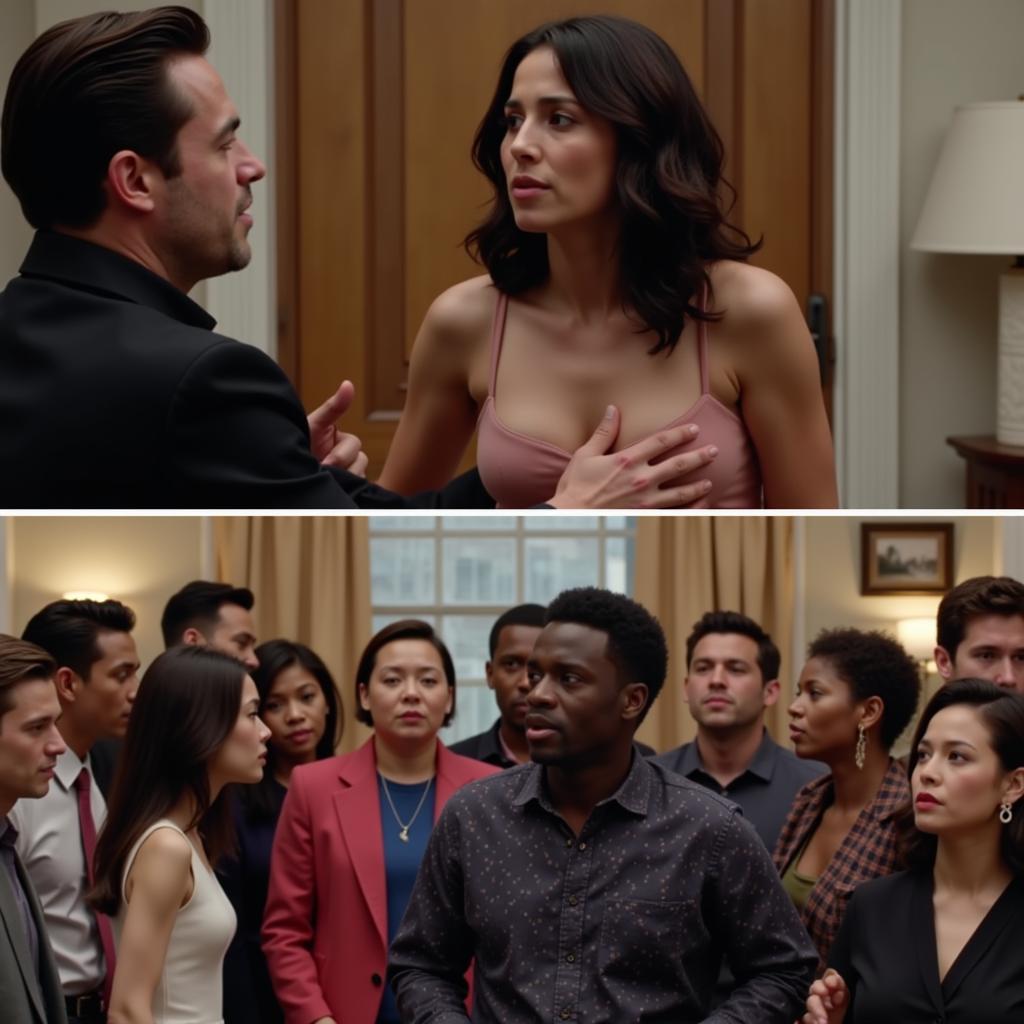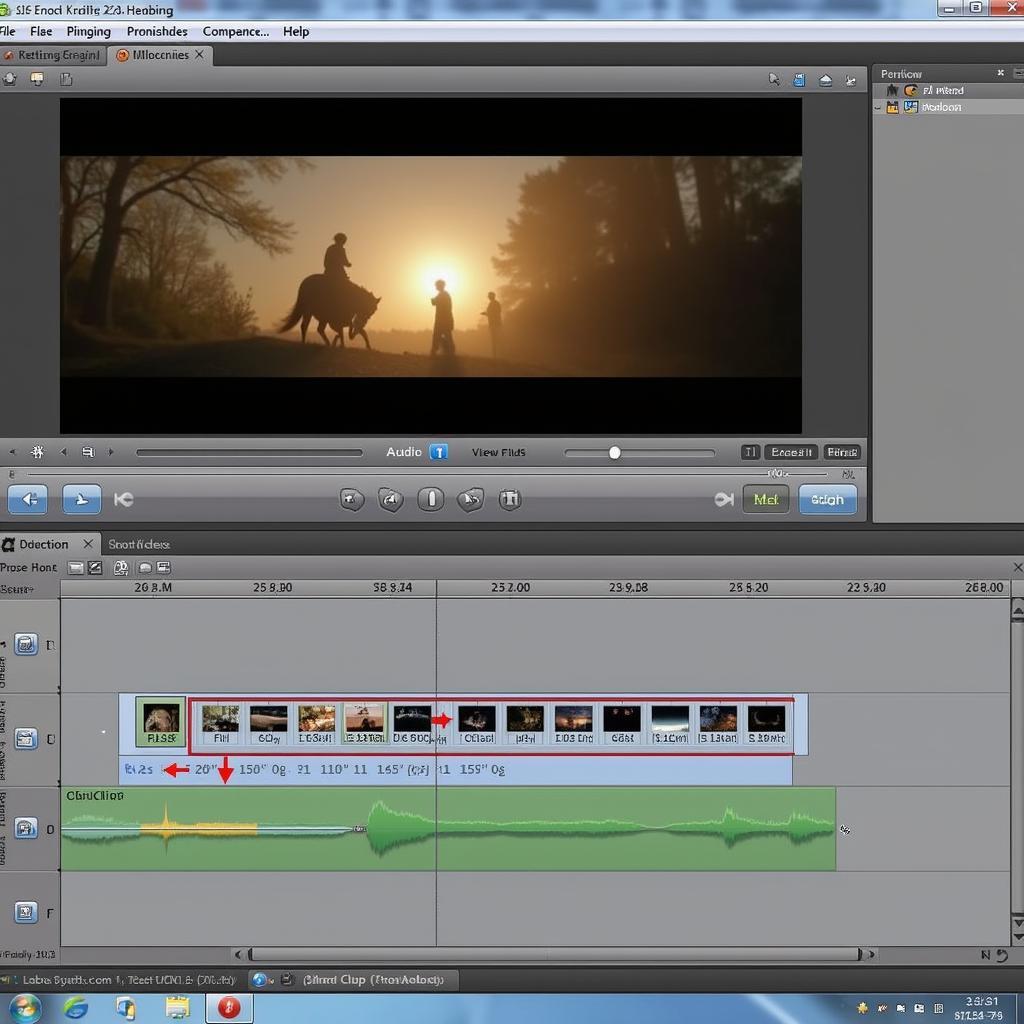The “boob grab” – a scene where a male character unexpectedly grabs a female character’s breasts – is a trope that has been around in movies for decades. While often played for laughs, this action carries with it a history of objectification and a disregard for consent that has sparked significant controversy in recent years.
Early Cinema and the Normalization of Non-Consent
In the early days of cinema, societal norms around consent and women’s bodily autonomy were vastly different. The “boob grab,” along with other forms of non-consensual behavior, often appeared in films without much criticism. This can be partly attributed to the male-dominated landscape of Hollywood at the time, both in front of and behind the camera.
 Shifting Attitudes Towards the Boob Grab in Modern Movies
Shifting Attitudes Towards the Boob Grab in Modern Movies
These scenes, often presented as humorous or even romantic, contributed to a culture where such behavior was normalized and even celebrated. The lack of female representation in creative roles meant that these narratives were rarely challenged, perpetuating harmful stereotypes and power imbalances.
The Rise of Feminism and Growing Discomfort
As feminism gained momentum in the latter half of the 20th century, so too did criticism of the “boob grab” and its implications. Audiences began to question the casual use of non-consensual acts for comedic effect. The objectification inherent in reducing a woman to her body parts became increasingly apparent and unacceptable.
Filmmakers, responding to this cultural shift, began to move away from such depictions. The “boob grab,” while still appearing occasionally, became less prevalent, particularly in genres outside of raunchy comedies. This change signaled a growing awareness of the need for more respectful and realistic portrayals of women in film.
The #MeToo Movement and a Reckoning in Hollywood
The #MeToo movement, sparked in 2017, brought a tidal wave of change to Hollywood. The movement shed light on the pervasive nature of sexual harassment and assault within the industry, prompting a long overdue conversation about power dynamics and consent. In the wake of #MeToo, the “boob grab” and similar tropes faced renewed scrutiny.
Many viewers, now acutely aware of the real-life implications of such behavior, found these scenes not only outdated but actively harmful. The argument that these depictions were “just jokes” held less weight as society grappled with the systemic issues that allowed such behavior to flourish.
Rethinking Humor and the Need for Consent
The controversy surrounding the “boob grab” ultimately boils down to a fundamental question: Can non-consensual acts ever be funny? While humor is subjective, it’s crucial to acknowledge the power dynamics at play in these scenarios. When a male character violates a female character’s boundaries for a cheap laugh, it reinforces a dangerous message about consent and bodily autonomy.
Moving forward, it’s essential for filmmakers to approach these topics with sensitivity and nuance. Humor can be a powerful tool for social commentary, but it should never come at the expense of perpetuating harmful stereotypes or normalizing non-consensual behavior.
The Future of Representation
The film industry has made strides in recent years to promote more diverse and respectful representations of women on screen. However, there is still work to be done. By challenging outdated tropes like the “boob grab” and engaging in thoughtful conversations about consent, we can create a media landscape that is both entertaining and reflective of our values.
Remember, at Movie USA Full HD, we provide a vast library of American films where you can explore the evolution of cinematic language and representation. For any questions or assistance, reach out to our 24/7 customer service at Phone Number: 02933444567, Email: [email protected] or visit our address: RF55+W7R, Lê Hồng Phong, Vị Tân, Vị Thanh, Hậu Giang, Việt Nam.
